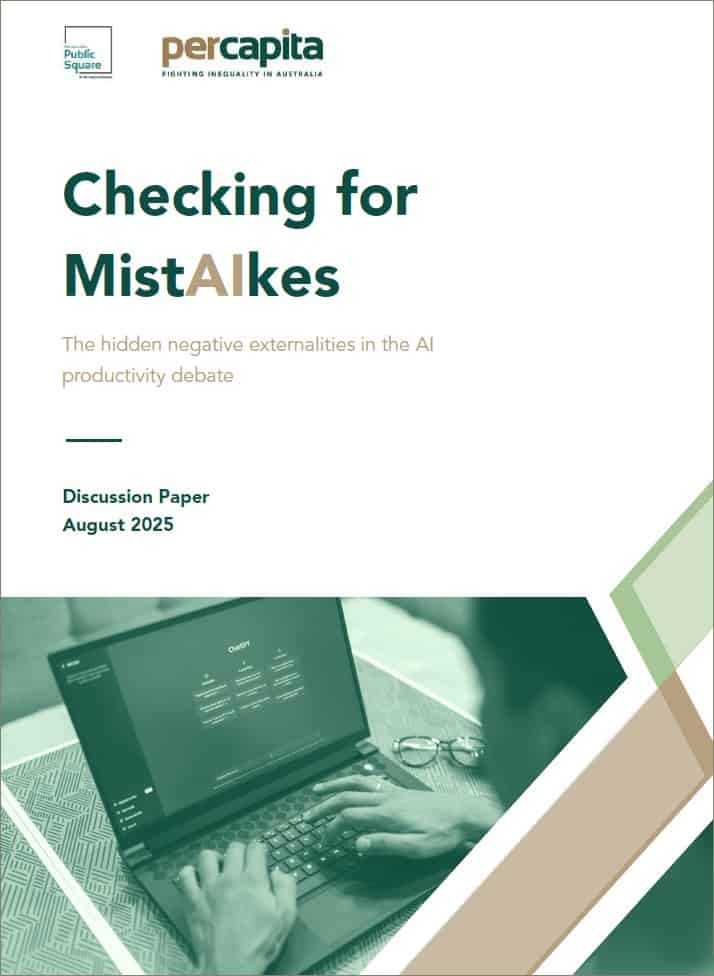Approaches to regulating AI have turned from discussions around safety, ethics and human rights, into ones around productivity, efficiency and worker outputs. This shift is being felt globally as technology firms gain traction with their lobbying efforts around the world. In Australia, where the government has yet to finalise its approach to regulating AI, the focus on productivity comes as the country experiences sluggish productivity growth.
But AI is not the magic bullet to a lukewarm economy. Although there are some genuine benefits being discovered, most of the bullish claims around productivity benefits have yet to be realised, more aspiration than inevitability.
Many claims of productivity benefits are derived from controlled, short-term ‘lab’ studies rather than real-world use cases, are produced or commissioned by technology companies who are agitating only for their own interests, or ignore significant considerations around negative externalities.
This report is a literature review around current AI productivity claims. It looks at studies which provide insights and analysis from real-world use cases, are from independent, credible institutions, and consider a holistic understanding of the AI environment, including negative effects and harms. This list is not meant to be exhaustive, rather provide key insights and compelling, evidence-based counterpoints to current claims around AI productivity.
There are four main themes which emerge from the literature:
1. Productivity benefits are uneven, unclear and will likely take many years to materialise
2. In many cases, AI is creating extra workload, or generating new tasks as a result of its use
3. Workers face new issues with AI use, including cognitive decline or debt, extra pressure and disadvantaging a new generation which could cause productivity issues in the medium to long term
4. There are many unresolved issues – like worker displacement, unclear liabilities, privacy breaches and copyright breaches that remain unanswered and should be factored in
This report recommends that further study and independent analysis is needed to qualify claims around the productivity benefits of AI, that negative externalities should not be ignored and instead be critical factors for consideration, and that AI is a national concern with diverse impacts requiring a holistic approach and not just filtered through a productivity lens.

